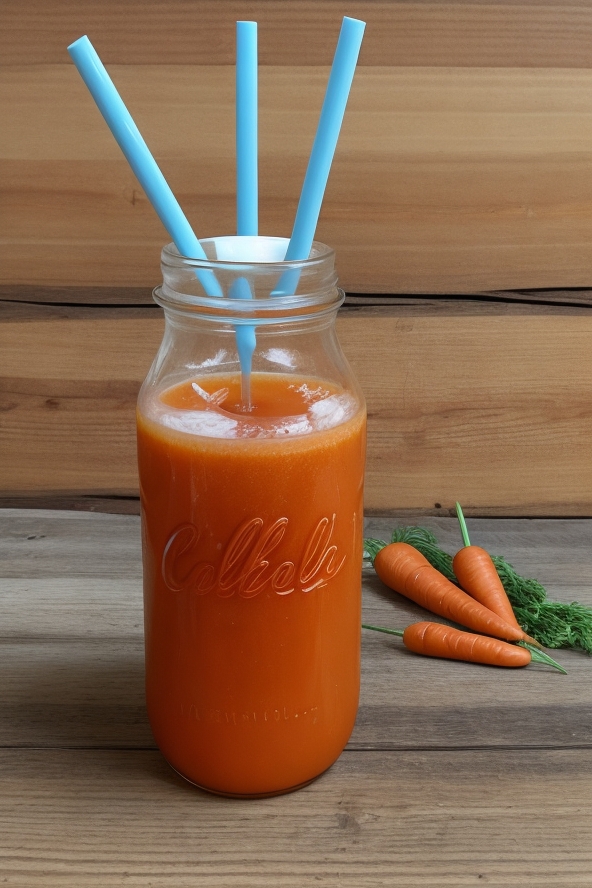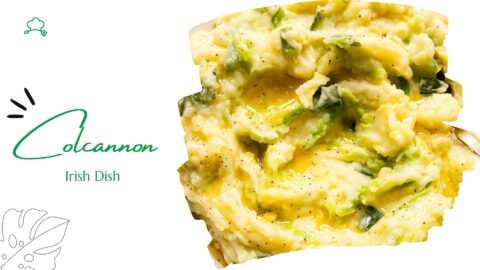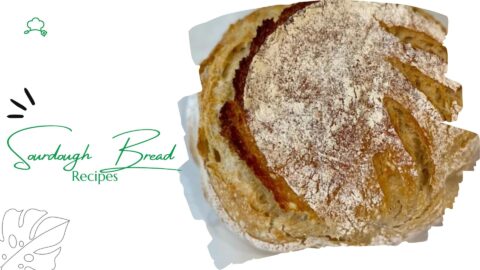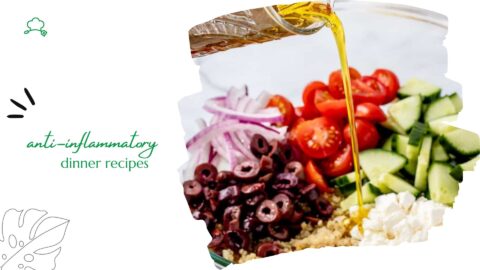Carrot-Based Dishes for Every Meal
Carrots are a versatile vegetable that can be used in a variety of recipes. They are not only delicious but also packed with nutrients such as beta carotene, fiber, and vitamin K. With so many health benefits, it’s no wonder that carrots are a popular ingredient in many dishes.

From soups and salads to cakes and muffins, there are countless ways to incorporate carrots into your meals. One popular recipe is glazed carrots, which are sweet and buttery, making them a favorite side dish for holidays and special occasions. Another classic recipe is carrot cake, which is moist and flavorful, with a cream cheese frosting that perfectly complements the sweetness of the carrots.
Whether you are looking for a healthy snack or a delicious dessert, there is a carrot recipe out there for everyone. With the help of these recipes, you can enjoy all the health benefits of this versatile vegetable while treating your taste buds to something delicious.
History of Carrot Recipes

Cultural Significance
Carrots have been a staple ingredient in many cultures for centuries. In fact, the first recorded carrot recipe dates back to the 10th century in an Arabic cookbook where carrots were used in a pudding-cake recipe with honey, walnut oil, and spices. Carrots were also used in medieval European cuisine, where they were often boiled and mashed into a puree and used as a base for soups and stews.
Carrots have also played a significant role in Indian cuisine, where they are used in a variety of dishes such as curries, pickles, and chutneys. In Chinese cuisine, carrots are often stir-fried with other vegetables and meat, while in Japanese cuisine, they are used in dishes such as tempura and sushi.
Evolution Over Time
Over time, carrot recipes have evolved and become more diverse. In the 18th century, European bakers started incorporating new ingredients such as baking powder and baking soda, which helped give carrot cake a lighter texture. By the late 1500s, carrots finally turned orange, which became the most common color of carrots. Before that, carrots were yellow, white, or purplish black.
Today, carrots are used in a variety of recipes, from savory dishes such as roasted carrots with herbs and spices to sweet dishes such as carrot cake and carrot pudding. They are also a popular ingredient in smoothies and juices, as they are high in antioxidants and vitamins.
Carrots are a versatile ingredient that can be used in a variety of dishes. From their humble beginnings in Arabic pudding-cake recipes to their current popularity in smoothies and juices, carrots have played an important role in the culinary world for centuries.
Nutritional Benefits of Carrots

Carrots are a versatile vegetable that can be consumed raw, cooked, or juiced. They are a great source of vitamins and minerals, as well as dietary fiber. Here are some of the nutritional benefits of carrots:
Vitamins and Minerals
Carrots are a rich source of vitamins and minerals that are essential for maintaining good health. They are particularly high in vitamin A, which is important for maintaining healthy vision, skin, and immune function. In fact, just one medium-sized carrot contains more than 100% of the daily recommended intake of vitamin A.
Carrots are also a good source of vitamin K, which is important for blood clotting and bone health, as well as potassium, which is important for maintaining healthy blood pressure and heart function. Additionally, they contain small amounts of other important nutrients, including vitamin C, vitamin E, and various B vitamins.
Dietary Fiber and Health Impact
Carrots are an excellent source of dietary fiber, which is important for maintaining healthy digestion and preventing constipation. One medium-sized carrot contains approximately 2 grams of fiber, which is about 8% of the daily recommended intake.
Eating a diet that is high in fiber has been linked to a reduced risk of various chronic diseases, including heart disease, diabetes, and certain types of cancer. Additionally, fiber can help to promote feelings of fullness and reduce overall calorie intake, which may be beneficial for weight management.
Overall, incorporating carrots into your diet can provide a range of nutritional benefits that can help to support good health.
Selecting and Storing Carrots

Carrots are a versatile vegetable that can be used in a variety of dishes. Whether you prefer them raw, cooked, or roasted, selecting and storing the best carrots is essential to ensure their quality and taste. In this section, we will discuss the best techniques for choosing and storing carrots.
Choosing the Best Carrots
When selecting carrots, it is important to choose the freshest ones available. Look for carrots that are firm, smooth, and free of cracks or soft spots. The color of the carrot should be bright orange, indicating that it is ripe and full of flavor. If the carrot has green tops, make sure they are fresh and not wilted.
It is also important to choose the right size of carrot for your needs. Baby carrots are great for snacking and salads, while larger carrots are better for cooking and roasting. Keep in mind that larger carrots may have a slightly woody texture, so choose accordingly.
Storage Techniques
Proper storage is crucial for keeping carrots fresh and tasty. If you plan to use your carrots within a few days, store them in the refrigerator in a plastic bag or container. Make sure to remove any green tops before storing, as they can draw moisture from the carrot and cause it to spoil.
If you want to store your carrots for a longer period of time, consider freezing them. To freeze carrots, blanch them in boiling water for 3-4 minutes, then transfer them to an ice bath to stop the cooking process. Once cooled, pat them dry and store in airtight containers or freezer bags. Frozen carrots can last up to a year in the freezer.
Another option for storing carrots is to pickle them. Pickled carrots make a great addition to sandwiches, salads, and more. To pickle carrots, slice them into thin rounds or sticks and pack them into a jar with vinegar, water, sugar, and spices. Refrigerate the jar for at least 24 hours before using.
In conclusion, selecting and storing carrots is easy with these simple techniques. By choosing the freshest carrots and storing them properly, you can enjoy their delicious flavor and versatility in a variety of dishes.
Carrot Juice Preparation

Carrot juice is a delicious and nutritious drink that can be enjoyed any time of the day. It’s packed with vitamins, minerals, and antioxidants that are great for your health. In this section, we’ll explore the different methods for making carrot juice and some flavor combinations that you can try.
Juicing Methods
There are two main methods for making carrot juice: using a juicer or a blender. Juicers extract the juice from the carrots and separate the pulp, while blenders blend the carrots and strain the juice. Both methods have their pros and cons, so it’s up to you to decide which one is best for you.
If you’re using a juicer, make sure to clean your carrots thoroughly and remove any dirt or debris. Cut them into small pieces and feed them into the juicer. You can add other fruits and vegetables to your juice for added flavor and nutrition.
If you’re using a blender, you’ll need to strain the pulp from the juice using a fine mesh strainer or cheesecloth. This method can be a bit messier, but it’s a great way to get all the fiber and nutrients from the carrots.
Flavor Combinations
Carrot juice is delicious on its own, but you can also experiment with different flavor combinations to create a unique and tasty drink. Here are some ideas to get you started:
- Carrot and apple: This is a classic combination that’s sweet and refreshing. Apples add a natural sweetness to the juice and help to balance out the earthy flavor of the carrots.
- Carrot and ginger: Ginger adds a spicy kick to the juice and is great for digestion. You can use fresh ginger root or powdered ginger depending on your preference.
- Carrot and orange: Oranges are high in vitamin C and add a tangy sweetness to the juice. This combination is perfect for a morning pick-me-up.
- Carrot and beet: Beets are packed with antioxidants and give the juice a beautiful deep red color. This combination is a great way to get a variety of nutrients in one drink.
In conclusion, carrot juice is a healthy and delicious drink that can be enjoyed in many different ways. Whether you prefer to use a juicer or a blender, or like to experiment with different flavor combinations, there’s no wrong way to make carrot juice.
Top Carrot Recipes

Carrots are a versatile vegetable that can be used in a variety of dishes, from savory to sweet. Here are some of the best carrot recipes that you can try at home.
Savory Dishes
- Honey Garlic Butter Roasted Carrots: These roasted carrots are coated in a delicious honey garlic butter sauce that makes them irresistible. They are perfect as a side dish or as a snack. You can find the recipe here.
- Carrot and Ginger Soup: This soup is a classic and is perfect for a cold winter day. The combination of carrot and ginger gives it a unique flavor that is both warming and comforting. You can find the recipe here.
- Carrot and Coriander Salad: This salad is fresh, light, and full of flavor. The combination of carrot and coriander (also known as cilantro) is perfect for a summer day. You can find the recipe here.
Sweet Treats
- Carrot Cake: This classic cake is a favorite for many people. It is moist, flavorful, and topped with a delicious cream cheese frosting. You can find the recipe here.
- Carrot and Pineapple Muffins: These muffins are a great way to start your day. They are moist, flavorful, and packed with nutrients. You can find the recipe here.
- Carrot Halwa: This Indian dessert is made with grated carrots, milk, sugar, and nuts. It is rich, creamy, and full of flavor. You can find the recipe here.
Carrot Juice Variations
- Carrot and Orange Juice: This juice is a classic and is perfect for a refreshing drink on a hot day. The combination of carrot and orange gives it a unique flavor that is both sweet and tangy. You can find the recipe here.
- Carrot and Beet Juice: This juice is packed with nutrients and is perfect for a healthy breakfast. The combination of carrot and beet gives it a unique flavor that is both sweet and earthy. You can find the recipe here.
- Carrot and Apple Juice: This juice is perfect for a quick and easy drink. The combination of carrot and apple gives it a unique flavor that is both sweet and refreshing. You can find the recipe here.
In conclusion, there are many ways to incorporate carrots into your meals, whether it’s in a savory dish, a sweet treat, or a refreshing juice. These top carrot recipes are sure to be a hit with your family and friends.
Carrots are a versatile root vegetable that can be used in a variety of dishes, from appetizers to desserts. With their sweet, earthy flavor and bright orange color, they are a popular ingredient in many cuisines around the world. Carrots are not only delicious, but they are also packed with nutrients that are essential for good health.
There are many different ways to prepare carrots, and the possibilities are endless. They can be roasted, boiled, steamed, or grilled, and can be used in everything from soups and stews to salads and side dishes. Carrots can also be grated or shredded and used in cakes, muffins, and other baked goods. With so many options, it’s easy to incorporate carrots into your diet in a variety of ways.
Whether you’re looking for a simple side dish or a more complex recipe, there are plenty of options when it comes to cooking with carrots. From glazed carrots to carrot cake, there is something for everyone. With their sweet and savory flavor and vibrant color, carrots are a delicious and nutritious addition to any meal.
Carrot Basics
Carrots are a versatile vegetable that can be eaten cooked or raw. They are packed with nutrients that are beneficial to health. In this section, we will discuss the nutritional value of carrots, how to select and store them, and some tips on how to use them in recipes.
Nutritional Value
Carrots are a good source of fiber, vitamin K, and potassium. They are also an excellent source of vitamin A, which is important for maintaining healthy eyesight. Carrots are low in calories and have a low glycemic index, which makes them a good choice for people who are trying to lose weight or manage their blood sugar levels.
Carrot juice is also a popular drink that is packed with nutrients. It is high in vitamin A, vitamin C, and potassium. Drinking carrot juice on a regular basis can help improve digestion, boost the immune system, and improve skin health.
Selection and Storage
When selecting carrots, look for ones that are firm and have a bright orange color. Avoid carrots that are soft or have spots, as this can be a sign of spoilage. Carrots can be stored in the refrigerator for up to two weeks. To keep them fresh longer, remove the tops before storing them.
Carrots can be used in a variety of recipes, including soups, stews, salads, and even desserts. When using carrots in recipes, be sure to wash them thoroughly and peel them if necessary. Carrots can be grated, sliced, or chopped depending on the recipe.
In summary, carrots are a nutritious and versatile vegetable that can be enjoyed in a variety of ways. They are easy to store and can be used in many different recipes. Whether you prefer to eat them raw or cooked, adding carrots to your diet is a great way to boost your nutrient intake and improve your overall health.
Carrot Recipes Overview
Carrots are a versatile vegetable that can be used in a variety of dishes, from salads to soups to desserts. When selecting a carrot recipe, there are certain criteria to consider to ensure that the dish is flavorful, healthy, and easy to prepare.
Recipe Selection Criteria
When selecting a carrot recipe, it is important to consider the following criteria:
- Flavor: A good carrot recipe should have a balance of flavors, including sweetness, acidity, and saltiness. The recipe should also be able to highlight the natural sweetness of the carrots without overpowering them with other flavors.
- Nutrition: Carrots are a great source of vitamin A, fiber, and other essential nutrients. A good carrot recipe should be able to preserve the nutritional value of the carrots while also providing a balanced and healthy meal.
- Ease of Preparation: A good carrot recipe should be easy to prepare, with simple ingredients and straightforward instructions. It should also be able to accommodate different cooking skill levels, from novice to expert.
Cooking Techniques
There are several cooking techniques that can be used to prepare carrots, each with its own advantages and disadvantages. Some of the most popular cooking techniques for carrots include:
- Roasting: Roasting is a great way to bring out the natural sweetness of carrots. It involves cooking the carrots in a hot oven until they are tender and caramelized.
- Boiling: Boiling is a quick and easy way to cook carrots, but it can also lead to loss of flavor and nutrients. To preserve the flavor and nutrients of the carrots, it is important to cook them in a small amount of water and to avoid overcooking them.
- Grilling: Grilling is a great way to add smoky flavor to carrots. It involves cooking the carrots over an open flame until they are tender and slightly charred.
Overall, there are many different carrot recipes to choose from, each with its own unique flavor and cooking technique. Some of the best carrot recipes include roasted carrot soup, carrot cake, glazed carrots, and carrot and ginger salad.
Juicing Carrots
Carrot juice is a popular and healthy beverage that is easy to make at home. Juicing carrots is a great way to consume a large amount of nutrients in a single glass. This section will cover the different methods of juicing carrots and the best flavor combinations.

Juicing Methods
There are two main methods of juicing carrots: using a juicer or a blender. Using a juicer is the most common method as it extracts the juice from the carrot while leaving the pulp behind. This results in a smooth and clear juice that is easy to drink. On the other hand, using a blender will result in a thicker juice that still contains the pulp. This method is often preferred as it retains more of the fiber and nutrients.
When juicing carrots, it is important to thoroughly wash and peel them before use. If using organic carrots, they can be left unpeeled. It is also recommended to use fresh carrots as they will produce a sweeter and more flavorful juice.
Flavor Combinations
Carrot juice has a naturally sweet and earthy flavor that pairs well with a variety of other fruits and vegetables. Some popular flavor combinations include:
- Carrot and apple juice: This combination is both sweet and refreshing. Apples add a tartness to the juice that balances out the sweetness of the carrots.
- Carrot and ginger juice: Ginger adds a spicy kick to the juice and also has anti-inflammatory properties.
- Carrot and orange juice: Oranges add a tangy flavor to the juice and are also a great source of vitamin C.
- Carrot and beet juice: Beets add a deep red color to the juice and are also high in antioxidants.
- Carrot and celery juice: Celery has a mild flavor that complements the sweetness of the carrots. It is also high in potassium and other nutrients.
In conclusion, juicing carrots is a simple and healthy way to add more nutrients to your diet. Whether using a juicer or a blender, there are many flavor combinations to choose from that will suit any taste preference.
Top Carrot Recipes
Carrots are a versatile vegetable that can be used in a variety of dishes, from savory to sweet. Here are some of the best carrot recipes that you can try at home.
Savory Dishes
Carrots can be used to add a touch of sweetness to savory dishes. Here are some of the best savory carrot recipes:
- Honey Garlic Butter Roasted Carrots – These roasted carrots are coated in a delicious honey garlic butter sauce that makes them irresistible.
- Vegetable Soup – This hearty soup is packed with a variety of vegetables, including carrots and sweet potatoes.
- Perfect Roasted Carrots Recipe – These roasted carrots are seasoned with olive oil, salt, and pepper for a simple yet delicious side dish.
- Carrot Ginger Soup – This soup is made with carrots, ginger, and coconut milk for a creamy and flavorful dish.
Sweet Treats
Carrots can also be used to make delicious sweet treats. Here are some of the best sweet carrot recipes:
- Carrot Cake – This classic cake is made with grated carrots, cinnamon, and cream cheese frosting.
- Carrot Cupcakes – These cupcakes are made with grated carrots, raisins, and cream cheese frosting for a delicious dessert.
- Carrot Cake Cookies – These cookies are made with grated carrots, cinnamon, and cream cheese frosting for a sweet and spicy treat.
- Carrot Juice – Carrot juice is a healthy and refreshing drink that is easy to make at home. Simply blend 12 carrots with water and strain the mixture for a delicious and nutritious drink.
These are just a few of the best carrot recipes out there. Whether you’re looking for a savory side dish or a sweet treat, there’s a carrot recipe out there for you to try.
Health Benefits
Carrots are a great source of many important nutrients that can benefit overall health. They are low in calories and high in fiber, making them a great addition to any diet. Here are some of the key health benefits of carrots:
1. Improved Vision
Carrots are well-known for their ability to improve vision. This is because they are high in beta-carotene, a type of vitamin A that is essential for good eyesight. Beta-carotene is converted into retinol in the body, which helps to protect the surface of the eye and prevent eye diseases such as macular degeneration and cataracts.
2. Boosted Immunity
Carrots are also high in vitamin C, which is important for a healthy immune system. Vitamin C helps to stimulate the production of white blood cells, which are responsible for fighting off infections and diseases. In addition, carrots are also high in antioxidants, which can help to protect the body against damage from free radicals.
3. Improved Digestion
Carrots are an excellent source of fiber, which is important for maintaining good digestion. Fiber helps to keep the digestive system moving smoothly, preventing constipation and other digestive problems. In addition, the fiber in carrots can help to lower cholesterol levels and reduce the risk of heart disease.
4. Potential Anti-Cancer Properties
Carrots contain a compound called falcarinol, which has been shown to have potential anti-cancer properties. This compound has been found to reduce the growth of cancer cells in the laboratory. While more research is needed to confirm these findings, it is possible that adding carrots to the diet could help to reduce the risk of certain types of cancer.
5. Benefits of Carrot Juice
Drinking carrot juice is a convenient way to get all the health benefits of carrots in a single glass. Carrot juice is a good source of vitamins A and C, as well as potassium and other important minerals. It is also low in calories and high in fiber, making it a great addition to any weight loss diet. However, it is important to note that carrot juice is high in natural sugars, so it should be consumed in moderation.







